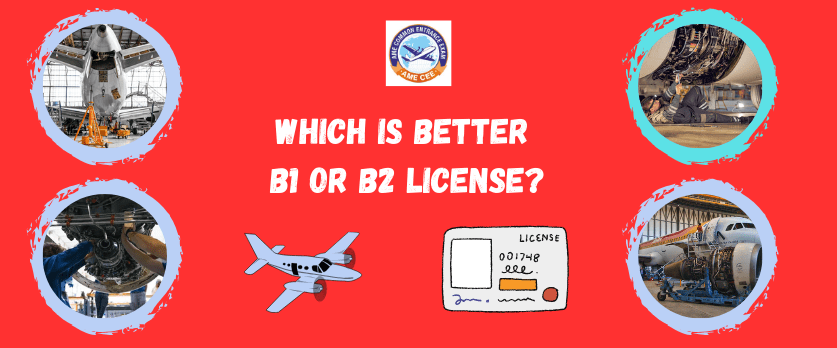The choice between a B1 or B2 license depends on individual preferences, skills, and career goals. Both B1 and B2 licenses offer rewarding career paths in aircraft maintenance, but they focus on different aspects of an aircraft. Here are some considerations:
B1 License
Specialization
B1 engineers specialize in mechanical systems, including airframe, powerplant, and associated mechanical components.
Tasks
Perform maintenance on engines (turbine and piston), landing gear, and structural components.
Skills
Requires a good understanding of mechanical systems, structures, and engine components.
Example Roles
Engine maintenance, structural repairs, landing gear inspections.
B2 License
Specialization
B2 engineers specialize in avionics or electrical systems.
Tasks
Perform maintenance on avionics, communication, navigation, and electrical systems.
Skills
Requires expertise in electronics, avionics systems, and electrical components.
Example Roles
Avionics system troubleshooting, instrumentation calibration, electrical system diagnostics.
Considerations
Interest and Skills
Choose the license based on your interest and skills. If you enjoy working with mechanical components, B1 might be more suitable. If you have a strong interest in avionics and electronics, B2 might be a better fit.
Career Goals
Consider your long-term career goals. Some individuals prefer the versatility of having both B1 and B2 licenses, allowing them to work on a broader range of aircraft systems.
Industry Demand
Evaluate the demand for B1 and B2 engineers in the aviation industry. The demand may vary based on the region and specific aircraft types operated by airlines or maintenance organizations.
Collaboration Opportunities
Consider the collaborative nature of the work. B1 and B2 engineers often collaborate on maintenance tasks, and having a diverse skill set can enhance teamwork.
Personal Preference
Ultimately, the choice depends on personal preference. Some individuals enjoy the hands-on mechanical aspects of aircraft, while others prefer the intricacies of avionics and electronics.
It’s not a matter of one license being inherently “better” than the other; rather, it’s about aligning your skills and interests with the specialization that best suits your career aspirations. Some professionals may choose to pursue both licenses to enhance their versatility and career opportunities. Always consider the specific requirements of the aviation authority in the region where you plan to work.
To become an aircraft maintenance engineer you may could join AME engineering through AME COMMON ENTRANCE EXAM (AME CEE) this examination you may join AME engineering approved by DGCA, EASA or UGC.


